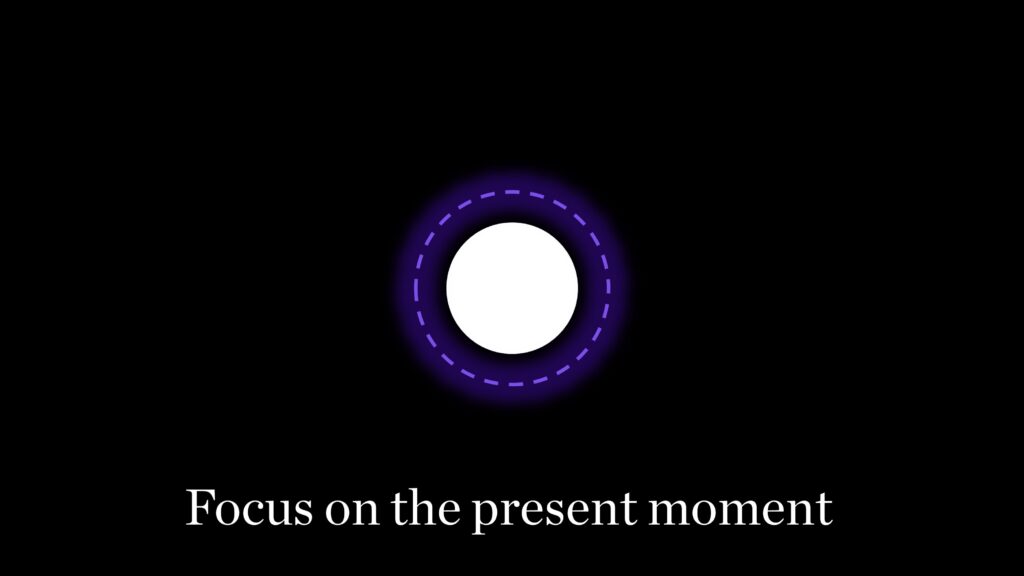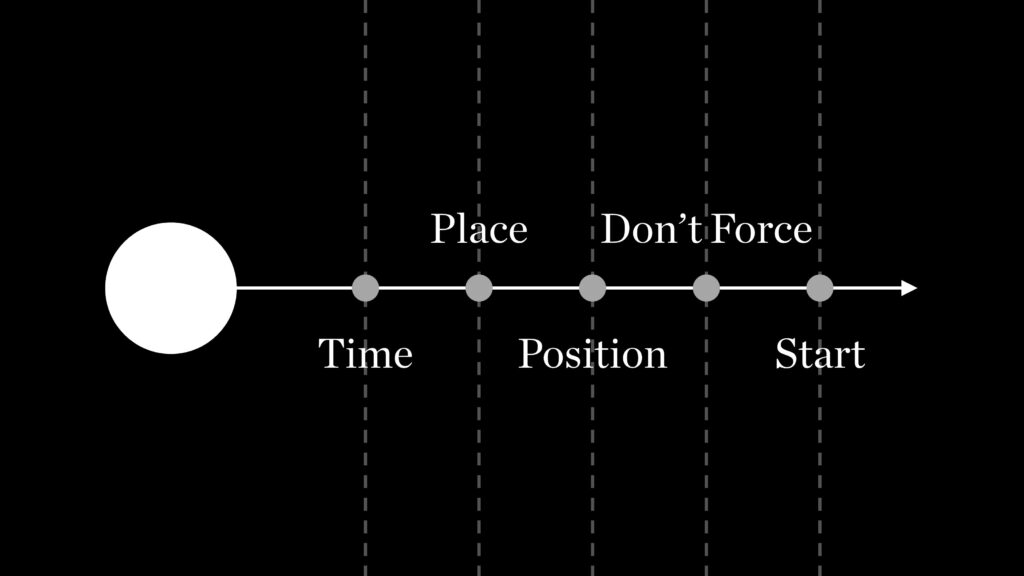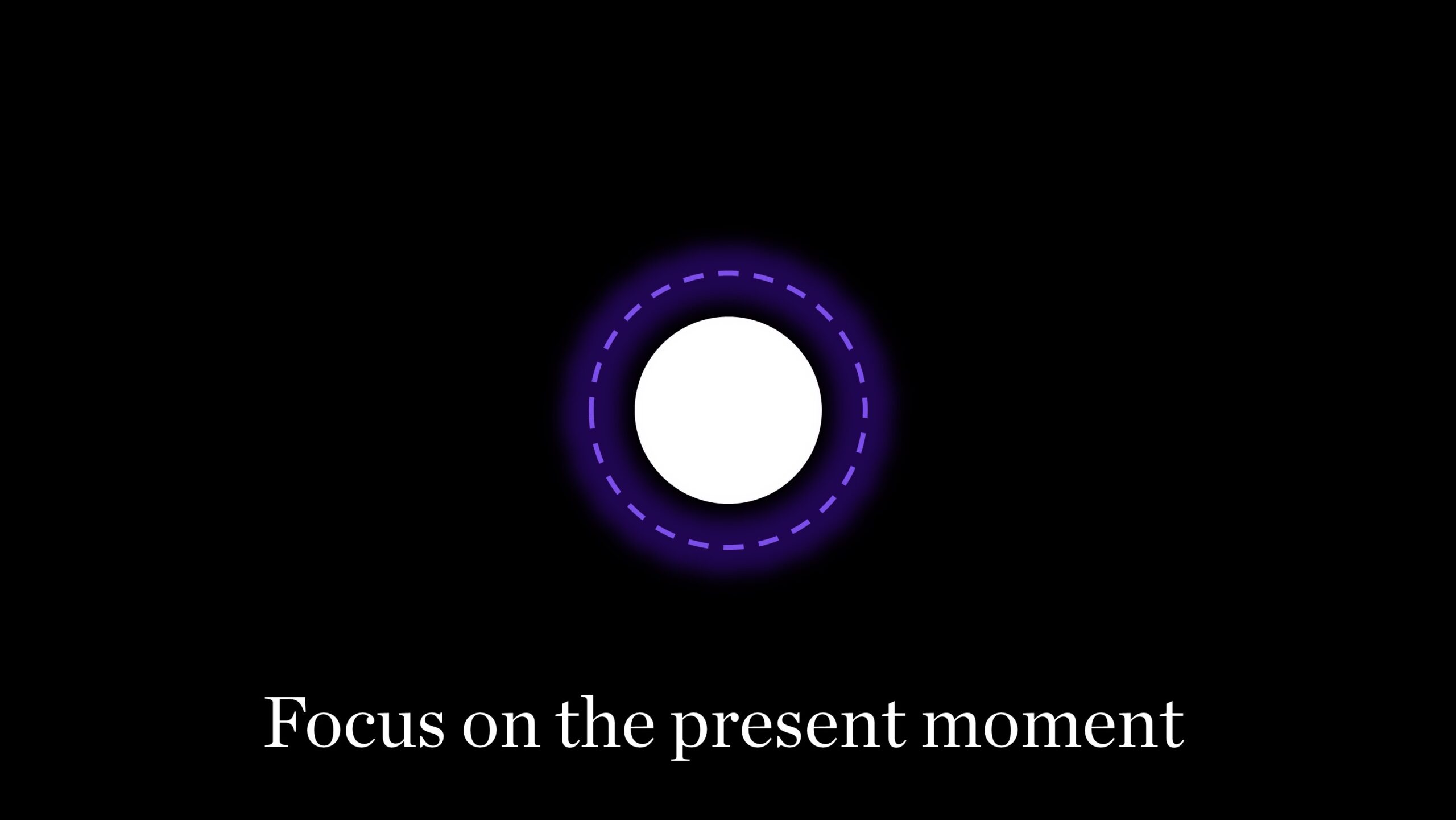Article last updated on January 17, 2022
Have you ever tried to start a new habit or finish a task but just couldn’t find the motivation? It’s not that you’re lazy, it just feels like there is something else more important. That something might be your emotions.
Sometimes, we feel too sad, too angry, or too happy to focus on anything else. This is where meditation comes in handy.
Meditation is a powerful tool for self-discipline. You can use it as a way to calm your mind and make yourself feel better about yourself.

Meditation helps with self-discipline because it allows you to focus on the present moment. This gives you time to reflect on your actions and their consequences.
For me, meditation is the most disciplined activity I do.
I will share my personal experience with you so you can see how meditation has helped me improve my life and some ways you can start meditating today to live a more disciplined life.
My Experience With Meditation and Self-discipline
When we meditate, we learn how to let go of all of those emotions that are making us feel overwhelmed and unfocused.
We can find some peace and focus on nothing else but the present moment.
I remember when I first started meditating, I was very focused on what was going on around me. But after a while, I realized that I wasn’t really focusing on anything at all. My thoughts were wandering off into random places.
This made me realize that I needed to change my approach. So I decided to try to focus on one thing at a time.
The reason why this works is that it forces you to think about only one thing at a time instead of thinking about everything at once.
It also makes you aware of your surroundings. If you are sitting down and someone walks by, you’ll notice them.
If you are walking somewhere, you’ll pay attention to every step you take. You become more aware of your environment and your body. This helps you get out of your head and into the real world.
Once you’ve practiced meditation for a while, you’ll notice that your mind becomes calmer.
And you’ll be able to control your thoughts much more easily than before.
When I skip meditation for several days, I tend to get into an even worse mood than usual. As a result, I often feel frustrated when things go wrong.
When we’re angry, our impulses cause us to overeat, drink too much, speak too much, gossip, and feel too proud. It basically comes from a place of selfishness.
Mindless thinking leads to an unbalanced lifestyle where one’s thoughts become chaotic and out of control.
Three things were very noticeable as I was getting better with meditation.
Better workouts
I’ve been working out and lifting weight for around 15 years, and I’m always looking for ways to improve myself.
One day, as I was lifting weights, I closed my eyes and tried to have a deeper connection with the muscles as I was contracting them.
This may sound silly, but it works. After doing exercise this way for a few weeks, I noticed that I had improved my workout routine.
Since then, I’ve used meditation to help me stay focused during my workouts.
Controlling urges to eat junk food
Another thing I did to improve my diet was to stop having urges for junk food.
It is like I managed to pull the brakes on my urges, see the long-term effects of eating these foods, and decided not to give in.
Food cravings (especially for unhealthy foods) become a silly thing to think about.
You start to think more about health benefits over short-term indulgences.
It’s like meditation helps your self-discipline become smoother, making it easier to become second nature.
You become a person that is in control and sees both short-term and long-term benefits or consequences.
Listening for deeper meaning
Again, this sounds woo-woo, but to be blunt, you recognize superficial BS when someone is talking.
You understand the deeper meaning behind words and phrases. You know if they are telling you something or just trying to look more important.
Meditation helps you do this too. It allows you to listen to people without judging them.
Instead, you listen to what they are saying and allow yourself to absorb the information.
After meditating for a while, you begin to hear the true message behind words and phrases. You start to see through the veil of lies and deceit.
This relates to self-discipline because you notice your self-talk too.
Most of our self-discipline comes from our own minds. We talk ourselves up and down.
We tell ourselves we can’t do something or we lie to ourselves.
But when we meditate, we learn how to detach from our inner dialogue.
We learn to observe our thoughts without judgment. We learn to let go of negative self-talk. We learn to accept who we are and where we’re headed.
Be a creator of effective strategies
As a growth strategist, it is my responsibility to create strategies that will lead people towards success.
Meditation helped me to develop stronger self-discipline so I could have a learning mentality and continuously be a more competent person.
I am happy with how my Clarity Blueprint has evolved overtime into a solid growth plan for online businesses.
Before, there was a lot of back-and-forth between me and clients, but meditation and objective perspective helped me to keep improving it.
So if you want to have more self-discipline, start meditating. It’s worth it.
How To Start Meditating For More Self-discipline
I can only give you tips from personal experience.
Right away, I want to say, if you want to devote only 10 minutes or less to each session, you should start with stillness practice.
But for a bit longer practice, here are some ways to start meditating today and live a more disciplined life.

Find the time
If you’re going to start meditating, it’s important that you find a time that works for you. It might be difficult in the beginning, but the more consistent you are with your meditation sessions, the easier it will get.
One way to make it work is to set aside 15 minutes of your day for meditation. That might seem like a long time at first–but over time, 15 minutes goes by fast!
Find the best place
Wherever possible, try to find an environment where you can fully concentrate on your meditation session.
This might be at home in a quiet room or outdoors in nature if that’s what helps you focus most.
Sometimes going somewhere new where there aren’t any distractions is helpful too!
Get into position
This doesn’t have to be complicated either! You don’t need any special equipment or clothing—just find a comfortable position and relax.
Some people sit cross-legged while others choose to sit on something higher than their hips, such as on top of their bed or couch cushions, so they can stretch out their back while sitting down more comfortably.
Start slow
When I started meditating, I was so nervous about doing something wrong that I would sit down and immediately fall asleep.
The best thing to do is to start slowly. If you need to take a break during your meditation, then that’s fine. Just come back later.
Don’t force anything
When you first start meditating, there’s a good chance you’ll feel anxious. But as you continue to practice, you’ll become more familiar with the process.
As you gain confidence, you won’t feel as much anxiety. So don’t worry if you feel any discomfort.
Just keep practicing, and eventually you’ll feel calm and relaxed.
No distractions and set a timer
Put your phone on airplane mode and set your timer for 15 minutes.
If you don’t feel comfortable setting a specific amount of time for your meditation, try using an app called Headspace.
Headspace has guided meditations that last anywhere between 5 and 20 minutes. They also offer free daily meditations.
The goal is to find something that feels right for you.
Strengthening Self-discipline Using Meditation
Think how often you’ve had to stop yourself from being distracted.
You probably do this all the time without even realizing it. The key is to learn to control these distracting thoughts.
We discipline ourselves to eat healthy, exercise, study, sleep well, and many other things.
This becomes easier as you become detached from the outcome.
Meditation teaches us to detach from our thoughts and emotions. When we do this, we no longer care about whether we succeed or fail.
Instead, we just focus on the present moment and let go of everything else.
In order to achieve success in life, we must master self-discipline.
Self-discipline is one of the best ways to strengthen it. It will help you stay focused on the task at hand and avoid getting distracted.
Meditation’s effects pave the way for effortful control of difficult emotions, ego-based willpower, and emotional pain.
These positive effects become an automatic behavior.
It’s important to note that meditation isn’t always easy. But mindful people own impulse control, so why not be one of them?
Conclusion
Self-discipline is a great way to help you develop your self-discipline. The practice provides many benefits for your physical and mental health, so it’s worth the effort to incorporate it into your routine.
Quality of life is greatly improved by having stronger self-discipline and starting to decrease anxiety levels.


